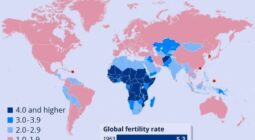For many years, Singapore has been a haven for foreign professionals thanks to the wide range of career prospects available, but also for its high wages and living standards. However, the economic downturn, coupled with rising unemployment, have compelled the Singaporean government to tighten regulations relating to the hiring of foreign professionals.
The Singaporean economy shrank by 12.6%, which is the lowest rate since 1965. Add to that an unemployment rate of nearly 4%, according to official figures, and which is likely to rise further by the end of 2020.
Some 150,000 and 200,000 job losses are expected, including locals and foreign residents. Indeed, many companies, mainly in the tourism, aviation, accommodation, food, retail, transportation, and arts and culture sectors, are actually struggling to keep the pace.
Manufacturing, wholesaling, construction and real estate have also been significantly affected by the crisis. Local authorities are therefore looking to preserve the jobs of locals and prioritise them when it comes to recruitment. What does this mean for foreign professionals?
Restrictions
Recruitment regulations were reinforced in May 2020. Thus, companies will have to spend more to be able to hire foreign professionals and request Employment Passes. The monthly minimum wage increased from Singapore Dollar (SGD) 2,840 to SGD $ 3,900, and this should progressively rise from SGD $ 4,500 in September to SGD $ 5,000 by the end of the year for finance professionals, according to Singaporean authorities.
Also, the minimum wage will vary depending on the age of the applicants, which means that companies will have to spend double to hire foreign professionals who are in their 40s. Regarding S-Passes, the minimum salary is rising from SGD $ 2,400 to SGD $ 2,500 as of October 1, 2020.
As in the case of the Employment Pass, this rate will vary depending on the level of experience. Criteria for the renewal of S Passes should also change from May 2021. For the time being, the quotas and levies remain unchanged.
Companies are also required to open their vacancies to locals and to recruit foreign professionals only if the skills required are not available locally. In fact, they have to prove that they have actively recruited and trained locals for professionals, managers, executives and technicians (PMET) positions. Besides, job vacancies must be advertised for at least 28 days so that potential local candidates get the time to apply.
It’s worth noting that highly qualified foreign professionals who are holders of Employment Passes account for 5% of the local workforce. In some sectors, such as financial services, more than half of key positions are held by these foreign professionals, especially in large multinationals that rely heavily on foreign expertise. For many companies, these new regulations are likely to affect not only the recruitment quota but also the renewal of existing visas.
Companies Under Scrutiny
Some 300 companies, including banks, financial firms and those providing professional services, are currently under close scrutiny for discriminatory hiring practices. It is highly recommended that employers prioritise the hiring of locals rather than foreign professionals through pre-selection. Therefore, companies caught for discriminatory hiring practices risk losing their privileges regarding employment permits, as well as prosecution. Employment Pass applications for foreign candidates will be refused.
Labour Market
Massive layoffs in many sectors have compelled thousands of expatriates to leave the country during the past few months. As of June 2020, the country had some 400,000 skilled foreign professionals out of a foreign workforce of 1.2 million. According to recruitment professionals, the number of job applications from foreign nationals is down 23% compared to the same period last year. Given the fragile labour market and the economic downturn, things are not likely to improve until 2022.
Alternatives
Thanks to its political stability and investment incentives provided by the government, Singapore ranks among the best countries to start a business in. The country is also endowed with an anti-corruption framework. However, with the current economic uncertainty, multinational companies operating in Singapore are looking for alternatives.
China and Hong Kong are now attracting companies that are looking to remain in Asia. This situation is likely to have a significant impact both on the local labour market and on the economy that, today, is still relying heavily on foreign investment.
(This article was translated from Singapour recrutera moins de professionnels estrangers apres la crise)









